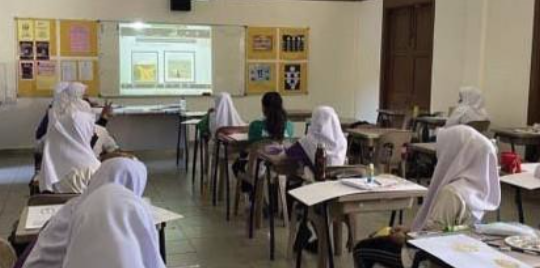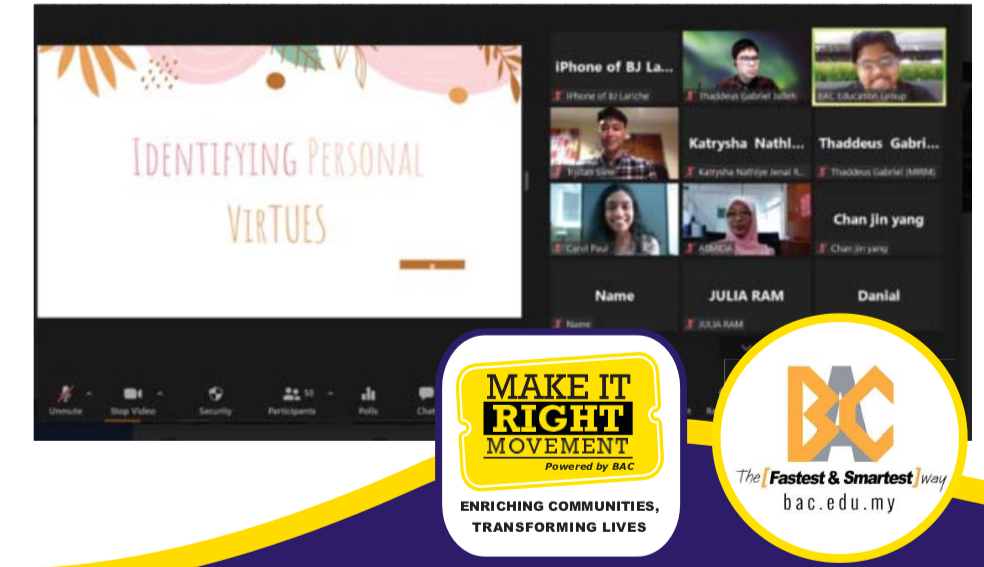Psychological First Aid (PFA) for Secondary School Students

In today’s fast-paced and often overwhelming world, mental health support has become increasingly critical for young people. Recognising this need, the Make It Right Movement (MIRM) initiated an impactful programme to provide Psychological First Aid (PFA) to secondary school students across the Klang Valley, empowering them with the tools to navigate emotional and psychological challenges.
The PFA programme, conducted online, reached over 200 students from various schools, including MGS, Wesley-Methodist School and SMK Taman Sea. Spearheaded by MIRM's dedicated team, including Brian Lariche, Amanda, Tristan, Gabriel, David and Carol, the programme was designed to equip students with coping strategies for stress and anxiety, particularly in the aftermath of traumatic events.
What is Psychological First Aid (PFA)?
Psychological First Aid is a simple, yet crucial, approach to helping individuals in the immediate aftermath of a crisis. PFA is designed to reduce stress symptoms and promote healthy recovery following events such as natural disasters, health emergencies, personal crises or other traumatic experiences. It involves providing emotional support, helping individuals feel safe and connected and offering practical assistance and information.
For secondary school students, the stress of academic pressure, personal struggles and more recently, the effects of the COVID-19 pandemic, have heightened the need for accessible mental health support. The PFA training equips students with the skills to manage these stressors and provides a foundation for long-term emotional well-being.
Key Elements of the PFA Program
The PFA sessions, which were conducted over two months, focused on the following key areas:
Recognising Stress Symptoms: Students were taught how to identify signs of stress, both in themselves and in their peers. This was particularly important in helping them understand when they or their friends might need help.
Emotional Regulation: The programme provided students with techniques to regulate their emotions during challenging times. Simple but effective methods such as deep breathing, mindfulness exercises and grounding techniques were introduced.
Crisis Communication: Students learned how to effectively communicate with others during times of distress. They were taught how to listen empathetically, provide reassurance and offer practical help without becoming overwhelmed themselves.
Building Resilience: One of the core goals of the program was to build resilience among students. The training encouraged them to recognize their own strengths and use positive coping mechanisms to overcome adversity.
The Programme’s Impact
The PFA programme aimed to help students recover from traumatic events and cope with everyday challenges. By providing a safe space to discuss mental health, the programme also helped reduce the stigma often associated with seeking help. With over 200 students trained in PFA, the impact of this initiative extended beyond individual participants, as students were also encouraged to share their knowledge with peers and family members.
In addition to addressing immediate stress and trauma, the programme was designed to foster long-term mental well-being. Students who participated in the PFA training reported feeling more equipped to handle emotional distress and more confident in their ability to support others going through difficult times.
Long-term Goals
MIRM’s PFA initiative represents just one aspect of its broader commitment to promoting mental health and emotional resilience among young people. As part of its long-term vision, MIRM plans to continue offering similar mental health support programmes to secondary schools across Malaysia, ensuring that students have the tools to navigate the complex emotional landscape of adolescence.
By integrating PFA into the school environment, MIRM hopes to build a culture of support and understanding where students feel safe discussing their mental health challenges. This initiative not only helps students cope with stress but also empowers them to be proactive in promoting mental well-being within their communities.

